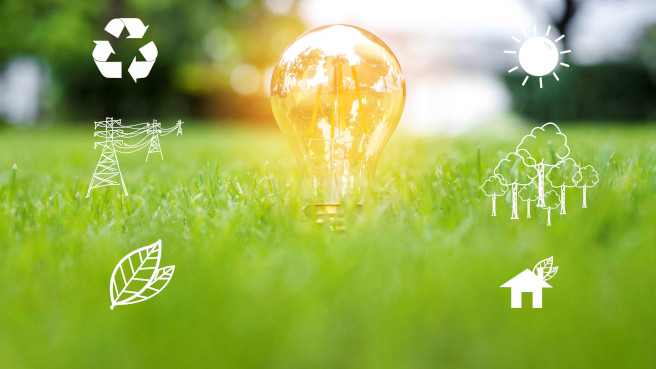
Global climate change, rapid population increase, and shortage of natural resources are causing pressure on global markets. The private sector players shoulder the main responsibility in solving the global issues that have increasingly made their presence felt, especially since the industrial revolution. At Global Investment Holdings with the consideration of our global investment portfolio we conduct our business with awareness of the potential impact of our performance on the environment. Accordingly, as we see as an important duty to continue to grow, we see it as an important duty to control our impact on the environment and contribute to the solution of global issues.
In this context, we regularly monitor the environmental performance of both GIH and all of our subsidiaries and aim for effective management. Our Environment and Sustainability Policies form the framework of our work in the fields of climate change and energy management, water and waste management, biodiversity, and local employment.
We determine the outline for the updating of the Environmental Policy, management of environmental issues and the studies conducted within the scope of the Sustainability Committee in line with the Principles and Procedures of the Environmental Management System.
As GIH, we attach importance to renewable energy investments in our portfolio and continue our investments in this field. Our renewable energy investments and studies on climate change and the protection of the water ecosystem are conducted in parallel with the Sustainable Development Goals of the United Nations.
We seek to further improve our performance regarding the environment with each passing year. Our environmental investments reached 4.6 million TL in 2021. There have been no environment-related non-compliance or environmental fines due to our operations within the last four years.
GIH Environmental Investments (TL Million)
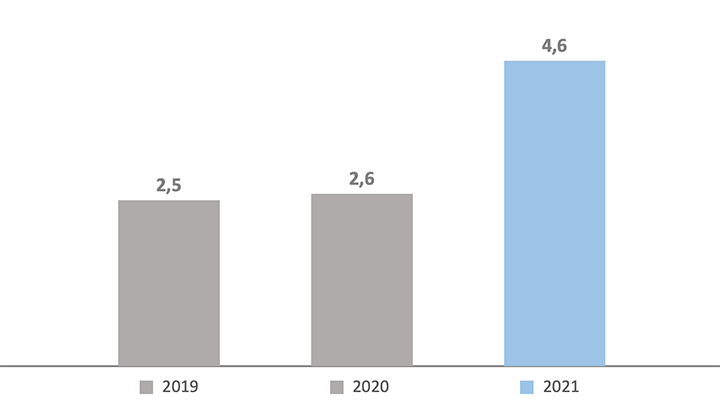
Our Certificates
In addition to the policies and principles with which all our subsidiaries are required to conform, we expand the use of management system practices at international standards for the purposes of ensuring effective tracking and management of our environmental performance. At the Holding, we have been awarded ISO 14001: 2015 Environmental Management System & ISO 9001:2015 Quality Management System & certification since 2018. We manage all our activities in line with these international standards. The certificates of companies operating in the Port Management sector, which is among our fields of activity, are given in the table below.
Certifications of the Ports
| Ports | ISO Standarts | Other | COVID 19 Certificates | ||||
| 9001 | 14001 | 45001 | Eco-Ports | Green-Ports | Servis Quality | ||
| Antigua | Safe Travels & Safe Tourism Certificate | ||||||
| Bar | ✓ | ✓ | ✓ | ||||
| Barcelona | In Progress | In Progress | ✓ | Safe Travels & Safe Tourism Certificate | |||
| Bodrum | ✓ | ✓ | ✓ | ✓ | ✓ | Safe Travels & Safe Tourism Certificate | |
| Cagliari | ✓ | ✓ | In Progress | Safe Travels & Safe Tourism Certificate | |||
| Catania | ✓ | ✓ | In Progress | Safe Travels & Safe Tourism Certificate | |||
| Kusadasi | ✓ | ✓ | ✓ | ✓ | ✓ | Safe Travels & Safe Tourism Certificate | |
| Lisbon | In Progress | In Progress | Safe Travels & Safe Tourism Certificate | ||||
| Malaga | ✓ | ✓ | In Progress | Safe Travels & Safe Tourism Certificate | |||
| Nassau | |||||||
| Taranto | ✓ | ✓ | In Progress | ||||
| Valletta | In Progress | In Progress | Safe Travels & Safe Tourism Certificate | ||||
| Zadar | Safe Travels & Safe Tourism Certificate | ||||||
*: Within the EU only Port authorities can become EcoPorts certified.
QSCs: Quality Service Certification is only eligible by Spanish Ports.
IN 2021, WE INCREASED OUR ENERGY EFFICIENCY WITH THE IMPROVEMENTS WE MADE IN OUR BIOMASS FACILITIES OPERATING IN ELECTRICITY GENERATION.
Kuşadası and Bodrum ports in our Port Management portfolio are certified in the Green Port category granted by Turkish Authorities, and also Kuşadası, Bodrum and Barcelona ports are under the scope of Green Port Applications by ESPO (European Sea Ports Organization) EcoPorts.
The ISO certificates of our subsidiaries operating in the electricity generation and mining sectors are listed in the table below.
| Plant | 14001 | 45001 | 9001 | 50001 |
| Mavi Bayrak Energy | ✓ | ✓ | ✓ | ✓ |
| Mavi Bayrak Dogu Energy | ✓ | ✓ | ✓ | ✓ |
| Doğal Energy | ✓ | ✓ | ✓ | ✓ |
| Tres Energy | ✓ | ✓ | ✓ | |
| Ra Günes Energy | ✓ | ✓ | ✓ | |
| Straton Maden | ✓ | ✓ | ✓ | |
| Edusa Atik | ✓ | ✓ | ✓ | |
| Consus Energy | ✓ | |||
| Tenera Energy | ✓ |
CLIMATE CHANGE AND ENERGY MANAGEMENT
The global climate change that originates from greenhouse gas emissions and whose effect we have been increasingly observable, brings along risks that are closely related to the operations of many sectors. Effective energy management plays an important role in management and conversion of these risks into an advantage.
Energy Efficiency
As we move towards our corporate goals, we position it among our priorities to reduce energy consumption, to use energy more efficiently and to promote responsible consumption across GIH and its subsidiaries. For this purpose, we regularly monitor energy usage. In 2021, consumption in our facilities in the electricity generation and mining sectors, where electricity consumption is the most intense, was 32,970 MWh, 17,062 MWh in Naturelgaz, which operates in the gas sector, and 6,283 MWh in our shopping malls that we own in the real estate sector. Besides, in our Port Group, energy consumption is monitored by greenhouse gas emission calculations.
In this way, we have the opportunity to identify areas where we can improve by testing our performance on sustainability and environmental issues in line with the targets we have set.
For the upcoming period, we aim to increase energy savings with various developments such as improvements in systems we use, roof solar panel applications, changes in lighting systems, and the use of electric vehicles.
In 2021, we increased our energy efficiency with the improvements we made in our biomass facilities operating in electricity generation. We achieved efficiency by reducing the amount of energy we spend per unit of energy production. We have improved the conversion rate of biomass to energy, thus reducing the amount of resources we consume at the same production level.
GROWING RENEWABLE ENERGY PORTFOLIO
Biomass Plants
In addition to two biomass plants in Söke and Şanlıurfa that we commissioned in 2017, we had commissioned a third plant with an installed capacity of 12 MW in Derik, Mardin in October 2018. Thus, our installed capacity to generate electricity from biomass reached a total of 29.2 MW. The energy we produce with this installed capacity corresponds to the electricity needs of approximately 80,000 households. In 2021, these three biomass power plants produced 195,353 MWh of electricity from a total of 317,575 tons of agricultural, forest and animal waste.
| Energy Efficiency of Biomass Plants | 2020 | 2021 |
| Consumed energy/Generated energy | 0.10 | 0.11 |
| Amount of biomass/Generated energy | 1.67 | 1.63 |
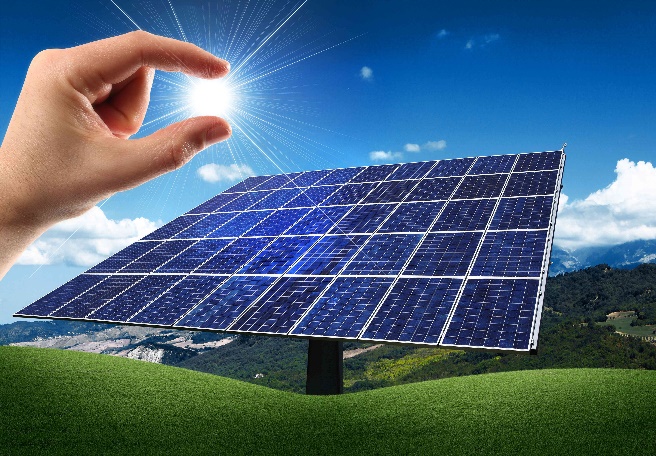
In 2021, we certified VCS (Verified Carbon Standard) carbon credits for the 2018-2020 period of our renewable energy production facilities. By selling all of the 91,000 carbon credits in these three years, we provided opportunities for institutions that want to reduce their carbon footprint.
Mavibayrak Energy biomass Power Plant operating in Aydın/Söke within Consus Energy has an internationally valid VCS certificate. The carbon credits calculated and obtained according to the methodology in accordance with the VCS are included in the carbon trading market in order to erase the carbon footprint of the organizations that have high carbon emissions and want to reduce it.
While calculating the carbon reduction of Mavibayrak Energy, a “science-based approach” was adopted within the scope of our sustainability studies and calculations were made using IPCC* methodologies. At our Mavibayrak Doğu Enerji facility, 162,000 I-REC** renewable energy certificates for the years 2020 and 2021 were credited.
At our Natural Energy facility, 22.00 I-REC renewable energy certificates for the years 2020 and 2021 were credited.
*The Intergovernmental Panel on Climate Change was established in 1988 by the two organizations of the United Nations, the World Meteorological Organization and the United Nations Environment Program, to assess the risks of climate change caused by human activities.
**Renewable energy certificate system standard that keeps the record of electricity produced from renewable energy sources and ensures the registration of renewable energy rights on behalf of the end consumer.
Solar Energy
The solar power plant investment with a capacity of 10.8 MWp, which was completed by our group company Ra Güneş in Mardin in 2019, started electricity generation in 2020. Ra Solar Power Plant produced 20,098 MWh in 2020 and 22,099 MWh in 2021. 20,157 I-REC renewable energy certificates for 2020 were credited. Furthermore, as a result of our commitment to innovation, Ra Solar Power Plant is one of the first solar plants in Turkey that utilizes solar tracker.
As Global Investment Holdings’ first international solar plant; an MoU was signed in Antigua with Antigua Public Utilities Authority for a 5MW build-operate solar project at feed-in-tariff for 30 years. Discussions are ongoing for the power purchase agreement.
ELECTRICITY GENERATION WITH COGENERATION SYSTEM
Cogeneration systems are combined heat and energy systems in which electricity and heat are produced together by burning other fuels, especially natural gas, in an engine or turbine. In other words, cogeneration is the production of energy from the same system simultaneously in both electrical and heat forms and making it available to enterprises. The main purpose in cogeneration is to utilize the primary fuel energy at the highest rate. The activities within the group are carried out with natural gas engines, and the energy efficiency reaches 90% with the use of the heat generated in the engines that produce electricity from natural gas. (The efficiency of natural gas cycle power plants in the market that only produces electricity is 43%-45%)
In trigeneration systems, energy can be offered to businesses simultaneously in three different ways as electricity, heating and cooling.
Distributed Power systems (cogeneration and trigeneration) produce clean and environmentally friendly energy with low carbon emissions. In 2021, 338,706 MWh energy was produced with distributed power systems, including electricity, heating and cooling.
WITHIN THE SCOPE OF OUR WASTE MANAGEMENT EFFORTS, WE PLAN TO MONITOR OUR WASTE GENERATION MORE EFFECTIVELY.
GHG Emissions
Port Infrastructure
In the period ending 31 March 2022, the sum of scope 1 and scope 2 emissions, calculated with a location-based approach according to the GHG Protocol, decreased by 15% compared to the previous year and amounted to 4,556 tons of CO2 equivalent. Further information on GHG emission calculations of the Ports is planned to be declared in the 2020 GPH Annual Report.
Table of the GHG Emissions of GPH (tonnes CO2e)*
| Table of the GHG Emissions of GPH (tons CO2e)* | GPH's Previous Reporting | Reporting Period (1 April 2021- 31 March 2022) |
| Scope 1 | 2,185.6 | 1,756.6 |
| Scope 2 (Location Based) | 3,201.20 | 2,798.90 |
| Scope 1 and 2 (Location Based) | 5,386.80 | 2,185.6 |
| Per full-time employee | 13.27 | 8.74 |
| Per Square meter area | 0.0234 | 0.0045 |
*: Emissions were calculated in accordance with the GHG Protocol control approach using IPCC 2006 emission factors, AR5 GWP values, the International Energy Agency and the World Resources Institute emission factors and local fuel data (net calorific value and density), where possible.
WATER AND WASTE MANAGEMENT
We monitor our water consumption in the fields where we are active and consider any waste that is the direct or indirect result of our operations as our responsibility within the scope of our environmental management strategy. In line with the responsibility we have undertaken, we track our water consumption on a regular basis.
In 2021, a total of 26,918 m3 of water was recycled, by reusing the waste water from production in our biomass energy production facilities in the cooling tower units. The total water consumption of the GIH including energy production companies, mining, gas, ports, real estate and asset management companies along with the Holding headquarters amounted to 1,166,835 m3.
Within the scope of our waste management efforts, we plan to monitor our waste generation more effectively. At the same time, we aim to increase the rate of recycling in general at the Holding and its subsidiaries. We aim to generate waste of a more recyclable nature through awareness studies conducted in the company and by expanding the scope of recycling practices. Additional information about waste is provided in the GIH Environmental Performance Indicators table below.
TOTAL WASTE AMOUNT GENERATED AS A RESULT OF OUR OPERATIONS
GIH ENVIRONMENTAL PERFORMANCE INDICATORS
Water Management
| Company Name | Water Use | Wastewater Amount | Recycled Wastewater | ||||||
| 2020 | 2021 | 2020 | 2021 | 2020 | 2021 | ||||
| Mavibayrak Energy | 425,000 | 484,538 | m3 | 52,760 | 46,740 | m3 | 4,868 | m3 | |
| Mavibayrak Doğu Energy | 444,805 | 484,900 | m3 | 19,692 | 2,340 | m3 | m3 | ||
| Doğal Energy | 9,571 | 76,720 | m3 | 650 | 480 | m3 | 17,000 | 22,050 | m3 |
| Ra Solar | 100 | 100 | m3 | 10 | 30 | m3 | m3 | ||
| Tres Energy | 2,300 | 2,300 | m3 | 1,536 | 1,536 | m3 | m3 | ||
| Straton Mining | 1,885 | 1,083 | m3 | 10,000 | 6,300 | m3 | m3 | ||
| Total | 883,661 | 1,049,641 | m3 | 84,648 | 57,426 | m3 | 17,000 | 26,918 | m3 |
| Global | 493 | ||||||||
| Global Ports | 81,109 | 15,090 | |||||||
| Real Estate Operations | 24,419 | 8,057 | 3,500 | ||||||
| Naturelgaz | 11,173 | m3 | 2,793 | m3 | 0 | ||||
| Total | 883,661 | 1,166,835 | m3 | 84,648 | 83,366 | m3 | 17,000 | 30,418 | m3 |
Environmental Management
| Company | Energy Generation | Electricity Consumption | ||||
| 2020 | 2021 | 2020 | 2021 | |||
| Mavibayrak Energy | 86,365 | 92,240 | MWh | 7,542 | 10,187 | MWh |
| Mavibayrak Doğu Energy | 90,553 | 88,929 | MWh | 9,134 | 8,330 | MWh |
| Doğal Energy | 13,629 | 14,184 | MWh | 2,494 | 3,511 | MWh |
| Total Biomass | 190,548 | 195,353 | MWh | 19,170 | 22,028 | MWh |
| Ra solar | 20,098 | 22,099 | MWh | 0 | 10 | MWh |
| Total Renewable Energy Produced | 210,645 | 217,452 | 19,170 | 22,038 | ||
| Tres Energy | 470,346 | 338,706 | MWh | 10,932 | MWh | |
| Straton Mining | MWh | MWh | ||||
| Total Biomass+Solar+Ko/Tri-Jen | 680,991 | 556,158 | MWh | 19,170 | 32,970 | MWh |
| Naturelgaz | 17,062 | MWh | ||||
| GPH | 4,874 | 6,780 | ||||
| Total | 680,991 | 556,158 | MWh | 24,044 | 56,812 | MWh |
Waste and Packaging Ambalaj
| Company | Hazardous Waste | Non-Hazardous Waste | ||||
| 2020 | 2021 | 2020 | 2021 | |||
| Mavibayrak Energy | 5 | 7 | ton | 263 | 686 | ton |
| Mavibayrak Doğu Energy | 2 | 3 | ton | 3,210 | 324 | ton |
| Doğal Energy | 2 | 1 | ton | 4,290 | - | ton |
| Ra Solar | - | - | ton | 1 | 1 | ton |
| Tres Energy | 24 | 57 | ton | 0 | ton | |
| Straton Mining | 3 | 4 | ton | 10 | ton | |
| Total | 36 | 72 | ton | 7,764 | 1,021 | ton |
| Global Menkul Değerler | ton | 12 | ton | |||
| GPH | 389 | ton | 674 | ton | ||
| Real Estate Operations | ton | ton | ||||
| Naturelgaz | 0 | 2 | ton | 11 | 7 | ton |
| Total | 36 | 463 | ton | 7,775 | 1,714 | ton |
In 2021, the total waste amount generated as a result of our operations was 2,177 tons. 79% of the waste is non-hazardous and 21% is hazardous waste. Additional information about waste is provided in the GIH Environmental Performance Indicators table above.
Our port operations are important in terms of waste management. We ensure that the waste generated at the ports is separated before storage. We store all the waste obtained from ships at our ports (where the legislation allows) and render such waste more environmentally friendly by subjecting it to treatment. On the other hand, we treat wastewater and regularly control its contents to ensure compatibility.
Wastewater recycling is carried out at Kuşadası Port, which is included in our Port Management portfolio; Wastewater collected from inbound passenger ships is separated and stored, and it is also recycled in a way that does not harm the environment, by undergoing the necessary processes.
In 2021, the total wastewater discharge of GIH including energy generation, gas, mining sector companies, ports and the real estate and the Holding Headquarters, amounted to 83,366 m3. We will continue to control the wastewater generated as a result of our operations within the scope of corporate and legislative requirements. In this regard, we aim to improve the quality and decrease the amount of wastewater generated in future periods.
OUR SUPPORT FOR THE PROTECTION OF BIODIVERSITY
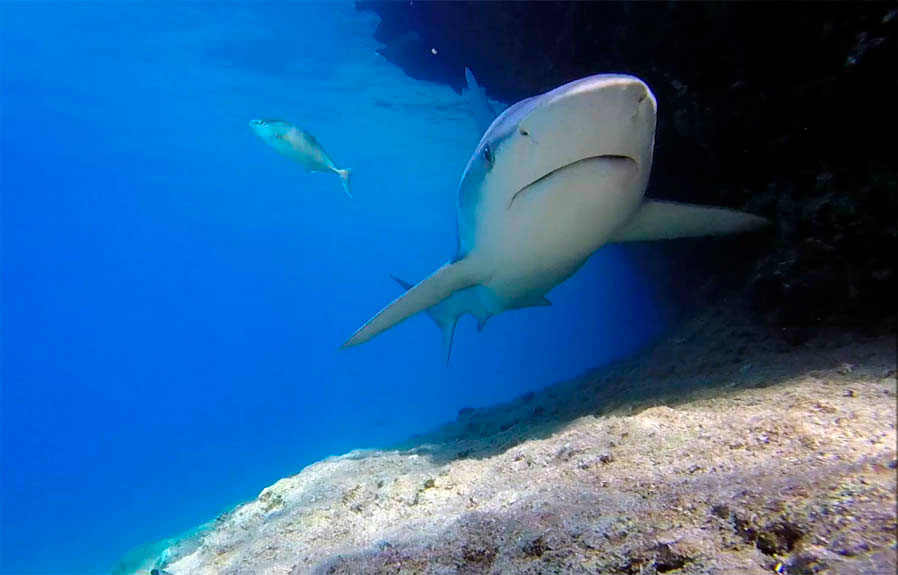
Protection of land and marine ecosystems is extremely important where the health of our planet and sustainability of our business models are concerned. All industrial activities have some sort of effect on the environment. We diligently work towards minimizing these effects and towards not causing any direct or indirect irrecoverable damage to the environment or damaging biodiversity as a result of our operations.
At Global Investment Holdings, we are aware of the effect that our facilities spread across the world may have on biodiversity, led by our port operations that are included within the scope of our wide-ranging activities as required by our expansive investment portfolio. For this reason, we assess the impact of all our operations on biodiversity and have continued to work on this issue since 2015. In addition to minimizing the effect of our operations, we collaborate with others and lead work for the protection of natural life in for contributing positively to biodiversity.
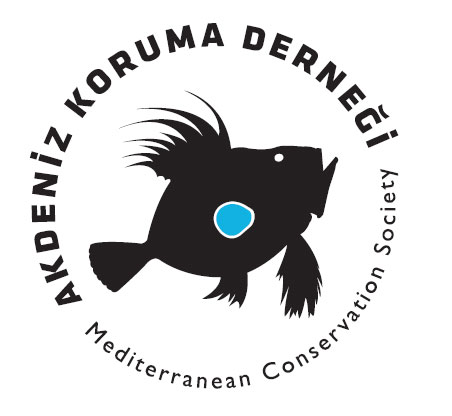
One of our facilities is in the proximity of Gulf of Gökova. Since 2015, we have been carrying out the Project for Conservation of the Breeding Area of Sand Sharks (Carcharhinus Plumbeaus ) in Boncuk Bay (Bead Bay) in cooperation with the Mediterranean Conservation Society. Bead Bay, which is very close to Gökova Bay, has been declared as a Special Environmental Protection Area. This project contributes to the protection of sand sharks and their habitats. Sand sharks are in the sensitive category according to the International Union for Conservation of Nature’s (IUCN) Red List and in the “threatened” category for the Mediterranean region. Accordingly, we include and benefit from the knowledge of the local fisherman in the studies we conduct.
More information on our sustainability practices are available at our Sustainability Report.


